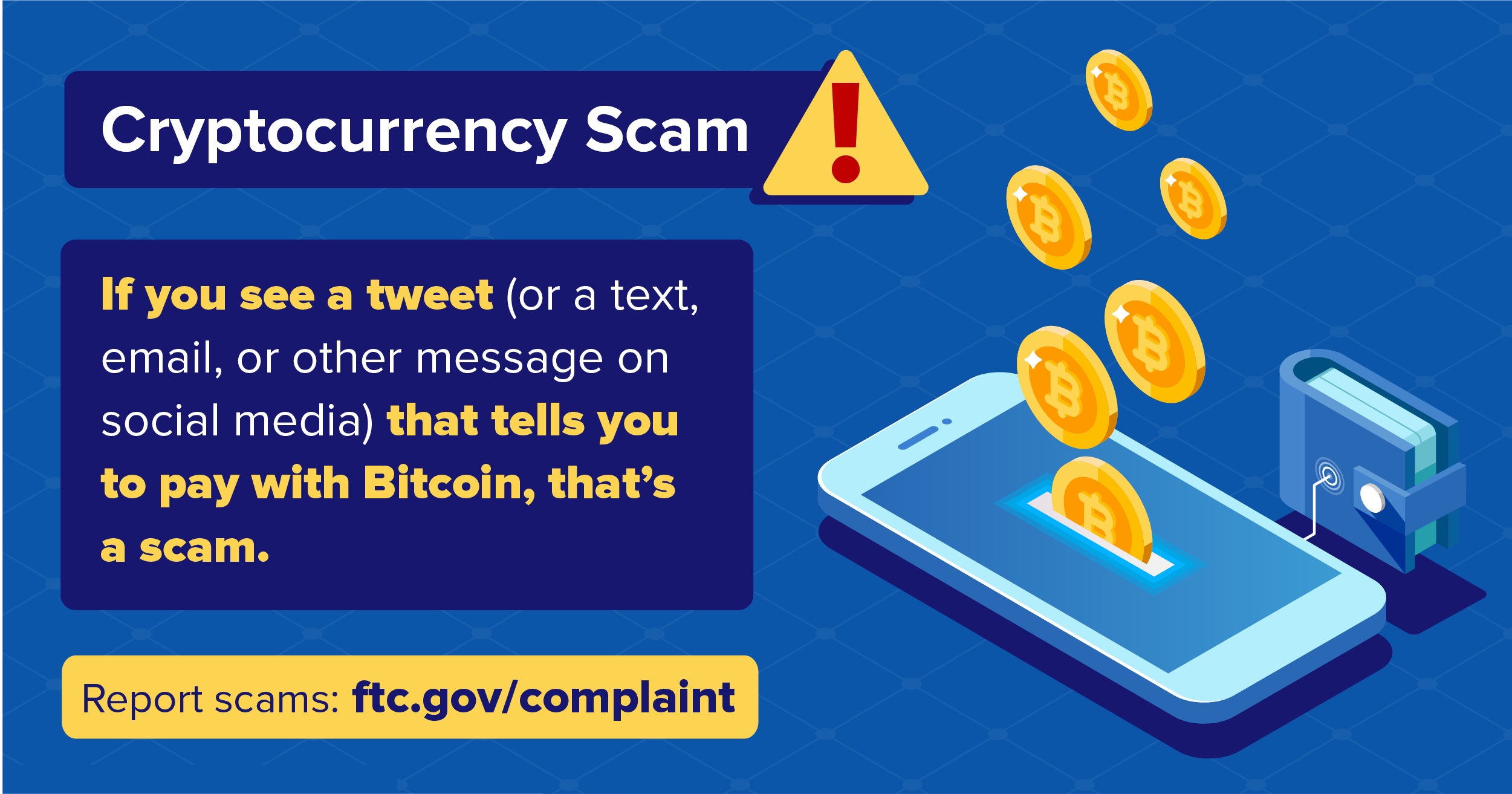Yesterday some high-profile people had their Twitter accounts hacked by scammers who sent out fake tweets asking followers to send money using Bitcoin – a type of cryptocurrency or digital money. 
Cryptocurrency scams are now a popular way for scammers to trick people into sending money. And they pop up in many ways. Most crypto scams can appear as emails trying to blackmail someone, online chain referral schemes, or bogus investment and business opportunities. But here’s what they all have in common – and what they have in common with yesterday’s Twitter hacks: A scammer wants you to send money, or make a payment, with Bitcoin or another type of cryptocurrency. Once you do, your money is gone, and there’s generally no way to get it back.
So if you see a tweet (or a text, email, or other message on social media) that tells you to pay with Bitcoin, you know that’s a scam. Other signs that something’s a scam? They might guarantee that you’ll make money (those guarantees are false); promise that you’ll double your money quickly (again, that’s always a fake promise); or say you’ll get free money in dollars or cryptocurrency (free money? Nope, not ever).
If you spot a cryptocurrency scam, report it immediately to the FTC at ftc.gov/complaint. For more information, check out What To Know About Cryptocurrency.
